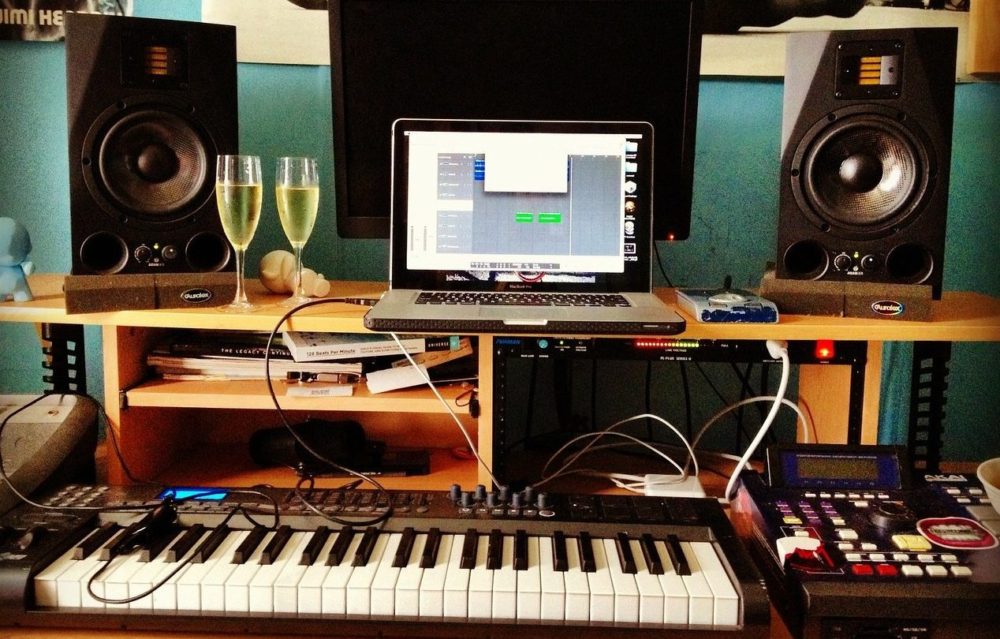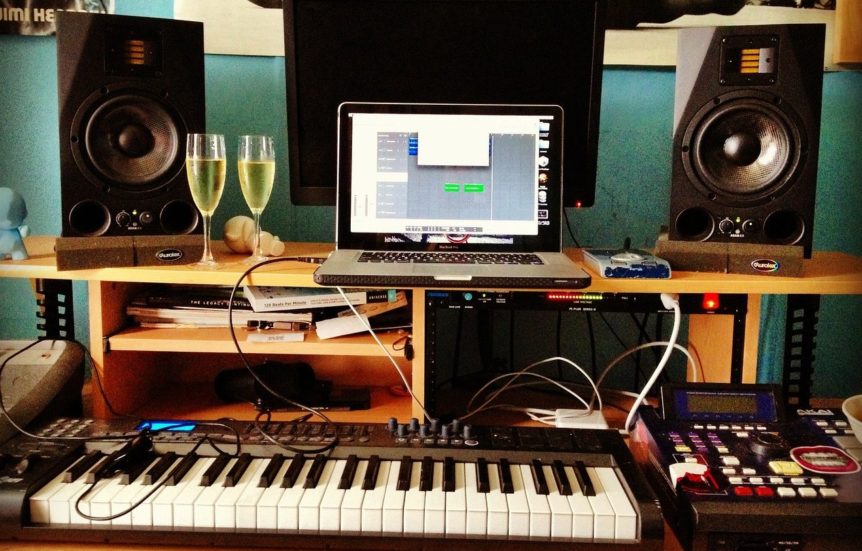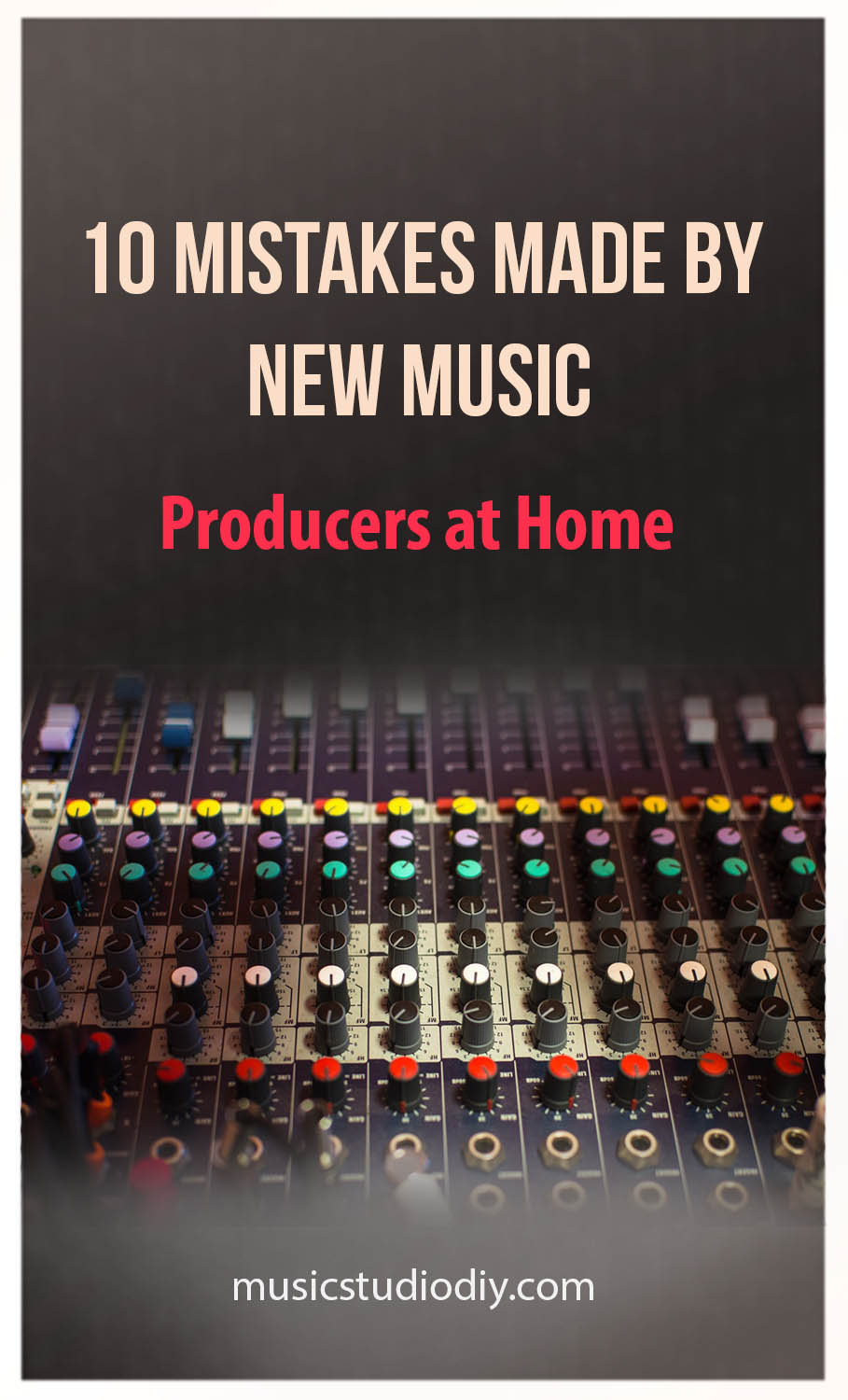 At one time or another, I’m certain we have all been a beginner at something. Naturally, being a newcomer at anything is very often the phase in which we make a lot of mistakes… And new music producers are no exception to this rule. Creativity is very much about trial and error, after all.
At one time or another, I’m certain we have all been a beginner at something. Naturally, being a newcomer at anything is very often the phase in which we make a lot of mistakes… And new music producers are no exception to this rule. Creativity is very much about trial and error, after all.
But if you’re not all that keen to fumble your way around in the dark too much, this article is for you… And for the sake of good progress. We’re going to highlight 10 very common mistakes made by new music producers in their home music studios. We’ll also take a look at how to avoid them as far as possible.
1. Avoid Skimping out on Studio Monitors
Alright. So it is very true that you don’t need absolutely all the most popular gear out there if you’re starting out as a producer. You just need a few essentials to get you going in the very beginning. But a very common aspect that a lot of newbies tend to evade is a quality set of studio monitors. Truthfully, if you’re going to skimp out on anything, don’t let it be the monitors. Just don’t.
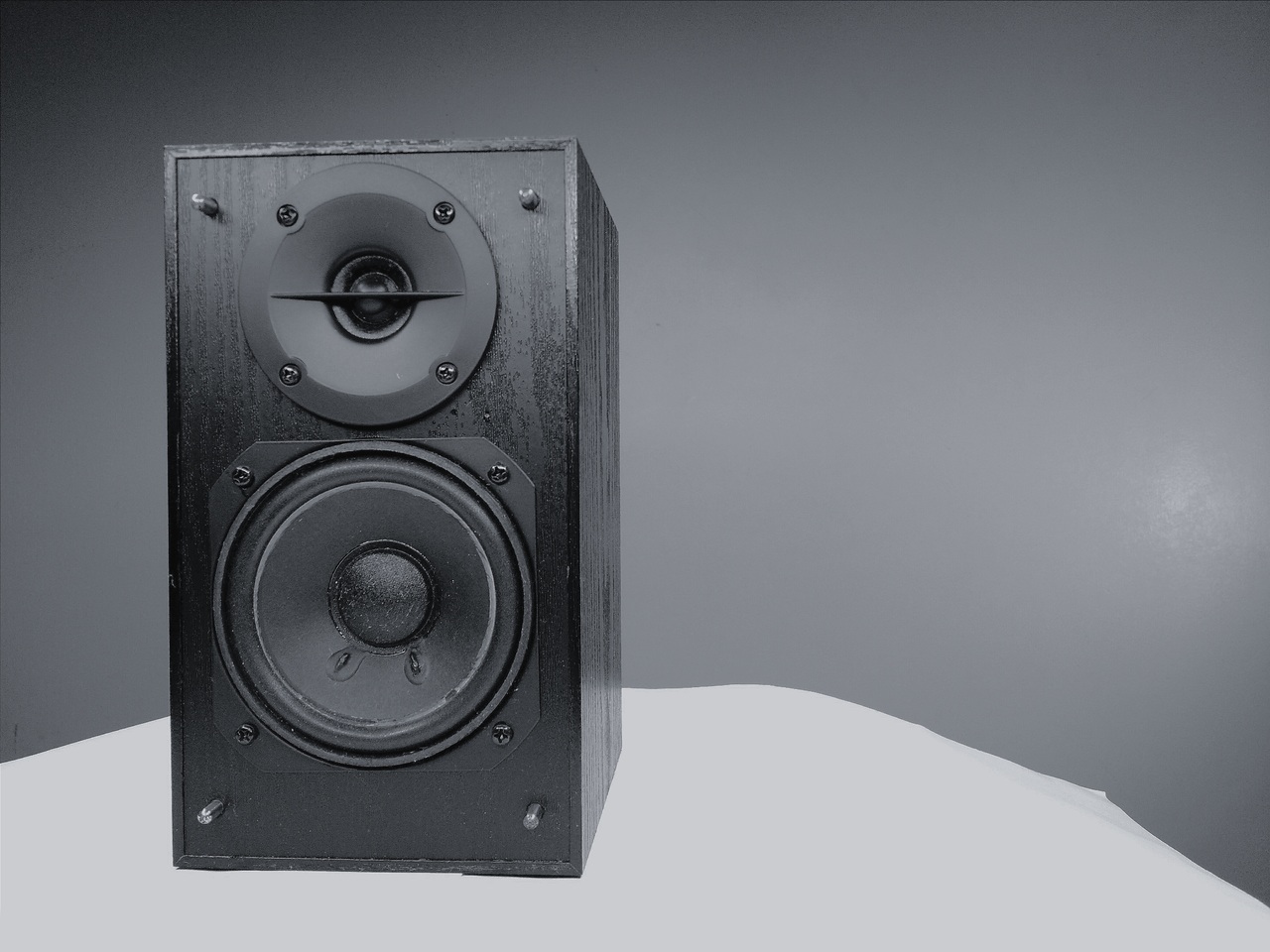
Use Monitors Instead of Speakers
Monitoring is a really intrinsic part of your overall music production process. Possibly the most important aspect, on the way to completing a track. This is a common oversight made by new music producers. A proper set of studio monitors basically serves the function of highlighting all the true details of the music, such that you are able to edit accurately as well as mix the track with good perception. Studio monitors present the recorded music with a flatness that bears all the subtle nuances, instrumentals, and possible flaws. There are no enhancements to the sound produced through studio monitors. The Yamaha HS-8 monitors produce a great example of this type of flatness.
…Which is why you cannot just go for your regular old hi-fi speakers. These are often modified for the end user’s listening-experience and satisfaction. Not for the refinement and nit-picking, you need to go through while striving for that sonic perfection. Have a look at this article on recommended studio monitors in terms of either quality or cost-effectiveness.
2. Avoid Only Correcting Imperfect Audio During Mixing
This is a very tempting error to make as new music producers. You’re either in a hurry and just want to get that mix done. Or, perhaps, you haven’t quite become the over-analytical perfectionist just yet…
Whatever your reasons are, it is never a good thing to simply resolve to fix the imperfections after. This, in many ways, is actually more time consuming as your time is ill-spent on corrective measures that could have been avoided. You could spend this time better on creative processing. The main culprits to look out for in a studio are:
-
- Poor Acoustics – You could avoid a great deal of corrective trouble just by acoustically treating your studio. Like an uninvited guest, unwanted reflections and excess resonances can really trickle into your recordings and become an unpleasantry.
-
- Untuned Instruments – You could either just have your instruments tuned prior to recording… or spend your time fixing it after. You pick.
-
- Other aspects you want to take care of beforehand include vocal intonation and ideal performance dynamics.
Yes, there are indeed many tools you can use that could make correcting these mistakes simpler. But really, instead of attempting to force good sound out of something less than good, it is best practice to have the ideal recorded audio to start with.
3. New Music Producers often want to overlap different tasks
Really avoid this mistake. It is always best to allocate different times for different tasks. Don’t compose while recording. And, most certainly, do not record while you are mixing. These are all processes that need and deserve their own time and attention.

Mix the track separately.
There are other problems that accompany EQing or mixing before you have actually completed your recording process. For example, altering the sound of a vocal or instrument by adding something like compression beforehand results in you having to commit to that altered sound. You kind of strip yourself of a little creative freedom, in a sense, by doing this. Whereas, you could have played around with the all the raw sounds after recording, and adjusted them as you desired in a complementary manner.
By processing instruments or vocals well before the final mix, the track is at risk of not blending well ultimately. And reversing this error is very difficult, and in some cases, not possible altogether.
4. Keep it simple
Similar to the previous point, new music producers tend to get a little excited and want to do it all. In many cases, less is more when it comes to your mix. Adding too many elements to your work can really make a mess of things, and have your music sounding rather over-embellished.
Showing off all your fancy, newly acquired techniques can be a really alluring thing to do. We’ve all been there… You’re feeling particularly proud and want the world to know… or to hear rather. Believe or not, minimalism can also lead to perfection and a professional sound.
Really consider setting aside the excess elements that don’t really do your mix any service. Doing this will allow the more particular details that should stand out, to do so well and shine.
5. Don’t prioritize popular techniques over improving your skill
Of course, you want to do whatever the incredible pros who inspire you are doing. You want to add elements the way the industry worthy do it or add bass just like that track your friends keep bumping along to. Much like the last point, you want to show off how impressively intricate you can get with your mix. And there is nothing wrong with that. Inspiration is good.
However, try not to jump the gun. Improving your technical knowledge about music production, as well as your knowledge of music, in general, is very important. If you really want to be good at music production, there are a lot of fundamental skills that need perfecting.
- Understand what chords are, and how to construct good chord progressions and melodies.
- Take the time to learn how to program an awesome drum pattern
- Learn how to construct a track in a way that allows for better listener engagement
- For clarity and tracks with more punch, you also need to learn basic mixing skills
When you have a good grasp of all these essentials, all those really complex and awesome techniques you aspire to use will make a lot more sense. And because of this, as a new music producer, you’ll be able to use them in ways that actually enhance your music.
6. Avoid mixing the same day as recording
Again, this mistake stems from the desire as, new music producers, to do it all in one shot. Understandably, given time constraints, this may not always be a possibility. However, where possible try to space out the tasks you have to perform.
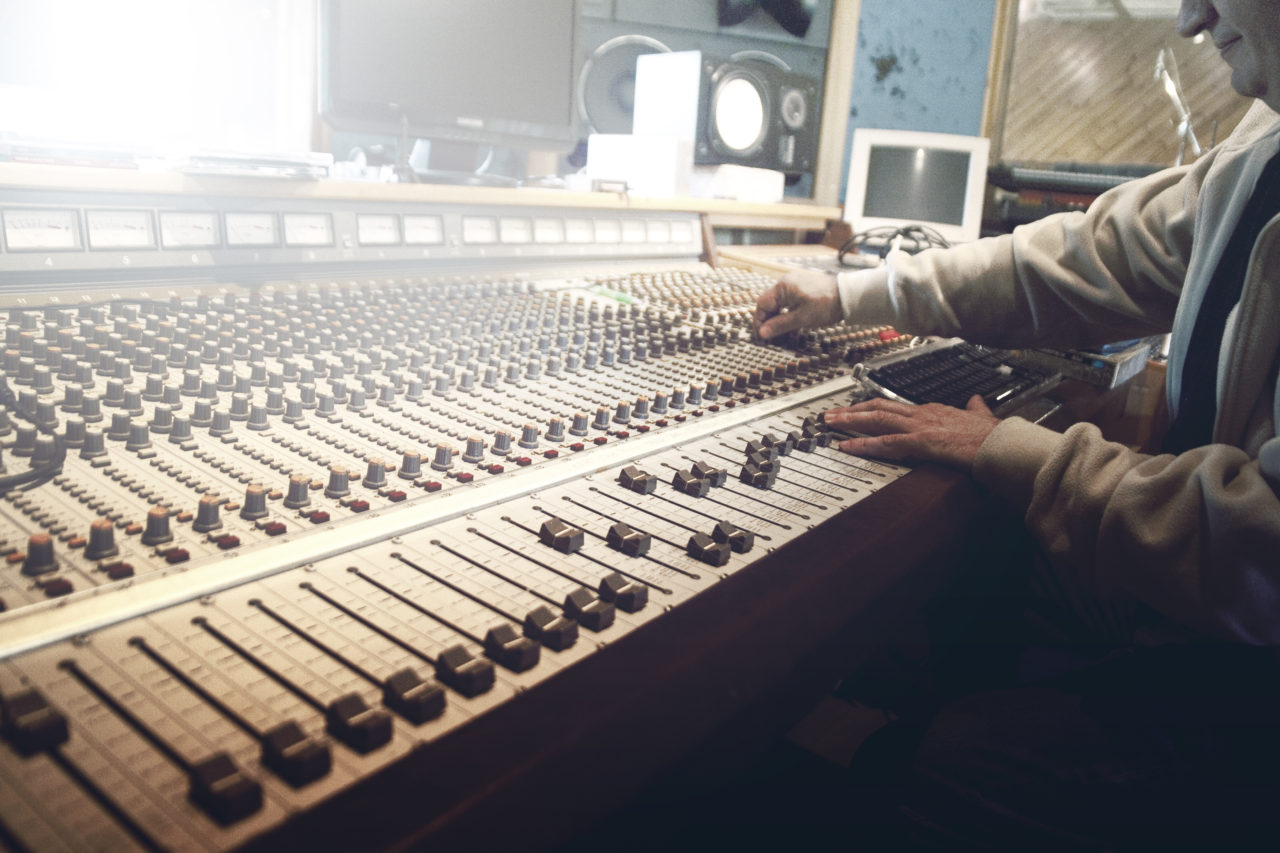
Particularly if you’ve just completed your recorded session, rather dedicate the next day to editing or mixing the track. It is best to be in a headspace focused on the task at hand by day. One day dedicated to making the music, playing the actual instruments or dealing the band (if that is the case). And a separate day intended for the application of all the technical bits and pieces.
One of the common things experienced by music producers is not being able to shake off the fine details that were previously focused on while either recording or editing. When the time comes to mix the track, it is easy to lose the ability to hear the song in its full context and assess how everything comes together. You end up wanting to hear the details focused on during the edit.
Because of this, it is better to go into each task with fresh ears and a mind clear of the last. If you really can’t afford to do the production work on separate days, try to take a break in between.
7. Be Unique
It is very important for new music producers to understand the difference between being inspired by something and… Outright copying. This is not good, and it is a frequently-made newbie mistake. As mentioned earlier it is all good and well to be inspired and want to incorporated minor details picked up from your faves.
But ultimately, why be a copy when the original already exists? It is crucial to find your own style in order to be appreciated. This can be an incredibly difficult process to go through, but you want your music to sound very much like you, rather than whoever on the radio. The more time you spend experimenting, you will progressively develop your own distinct sound and way of executing your mixing.
8. Don’t avoid the presets that come with your DAW software
The presets accompanying your DAW software are there for a reason. And a very good one at that. It can feel like your’re being a little lazy by taking advantage of them, but they are absolutely there to help you out. They make life that much easier, and using them does not mean you lack creativity. Instead, presets can be worked very well into to your existing creative process.
The great thing about presets is that they can always be adapted to your individual, distinctive style. To maintain your uniqueness, if you’d like, alter the preset so it is not quite the original preset anymore. But in all, the presets in your software can help save valuable time, and help new music producers create a more refined sounding product in the end. Avoid underestimating the power of technology available to you such as your presets.
9. Avoid doing it all by yourself
This can be a tricky one which is really understandable. If you’re a new music producer, you may not know many other producers or anyone knowledgeable in your field. But as far as possible, I really think it is best to avoid doing absolutely everything by your lonesome, and wearing all hats. Even if the studio you are working from is in your home, it is great to get some sort of external perspective or help.
Playing every role i.e. the musician, vocalist, recording engineer, mixer etc. etc. is totally doable on your own. Many can attest to that. But it can also be the cause of several mistakes, and critical or minor details you’ve unintentionally overlooked. All of these little oversights can add up and return only to torment you in the end. Especially if you are dead set on getting that professional sound. You’d absolutely have to go back and time-waste by taking corrective measures.
The reality is, once you spent hours upon hours listening to and working on the same track, it’s almost inevitable to skip over something. If you can’t get another producer to assist, where possible get a friend to help with minor studio work, so you can focus on the more important tasks.
10. Don’t make the mistake of not networking with other producers
Last but certainly not least: networking. Don’t live in your own little bubble in which no other home producer exists. It is really great to get feedback from other people in your field, trying out the same things that you are. It is always great to have people who you can refer to if you have questions.
As mentioned in the last point, yes, you may not know or have access to other producers in your immediate surroundings. However, the worldwide web is a place in which different communities come together. There are countless online forums and communities dedicated to music production. So, by all means, get in touch.
Conclusion
I hope these highlighted 10 mistakes often made by new music producers give a little insight into a few things you could try to work on. Ultimately, there are not really any rules when it comes to this thing. You could choose to look into only one or two factors here and there. But by all means, feel free to explore your creative process in whatever way you’d like.
Check out this article for great tips on how to improve your production process in the most productive way.
